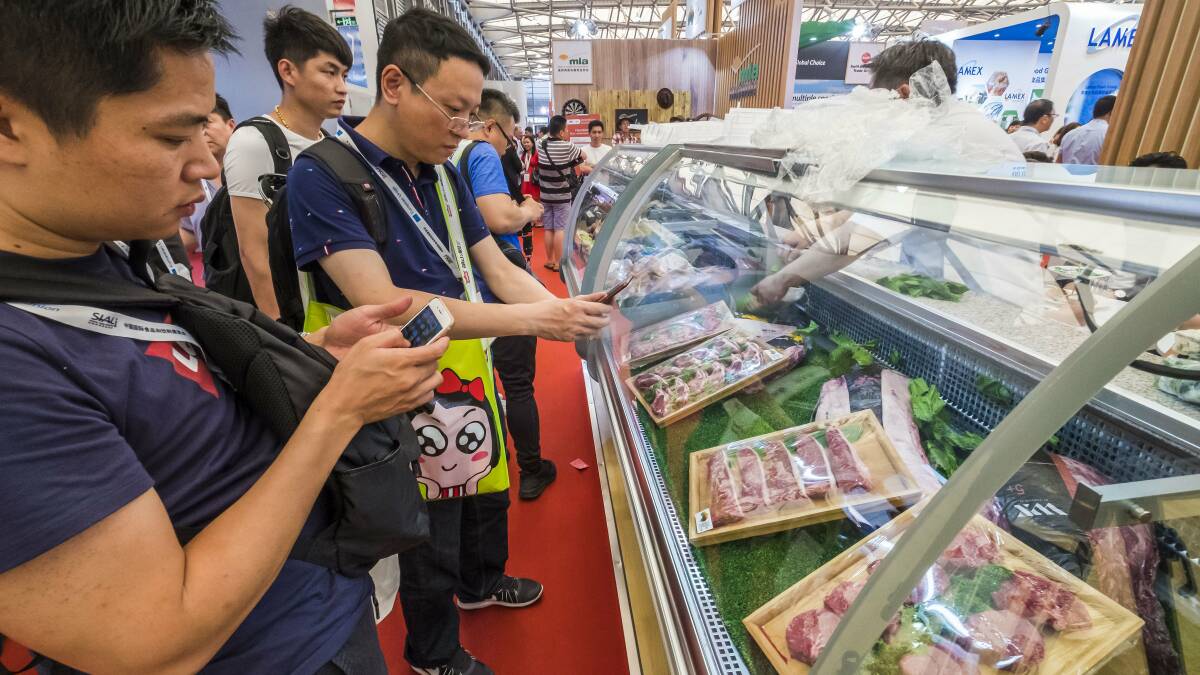
AS AFRICAN swine fever wreaks massive disruption in global protein supply and demand over the next two years, there will be benefits to Australian producers in upward pressure on prices, analysts believe.
On the flip side, ASF presents the greatest risk from animal disease Australia has ever faced, although red meat industry leaders feel the Federal Government has a good handle on the situation.
Biosecurity officers have just wrapped up a month-long blitz which saw all passengers and crew coming in from high-risk countries affected by the disease screened using a combination of x-ray, manual inspection and detector dogs.
Twenty-eight infringements and 17 written warnings were issued during the operation with 44 kilograms of products seized. A number of pork products seized were sent for ASF testing, with 22pc returning a positive result.
Overwhelming
Rabobank's flagship annual global outlook for animal proteins says while production growth is expected in most regions in 2020, "the impact of ASF in Asia overwhelms the outlook" as China's production losses exceed the growth in all other regions combined.
Meat & Livestock Australia's managing director Jason Strong explains it this way: The latest projection is a 28m tonne reduction in pork production in China. The global beef trade on an annual basis is 10m tonnes and pork is also 10m so it's more than the total of those two combined.
Rabobank analyst Angus Gidley-Baird said the drop in pork production was driving a hole in the global protein space that simply could not be met, despite total production growth being positive for the key regions next year.
The Rabobank report warns ASF, which has already reached Australia's doorstep with an incursion in East Timor, is likely to spread to new countries in 2020.
Mecardo analyst Matt Dalgleish said while ASF had already reached Australian borders it had not gone into the community yet, which was the main thing.
"The pig production methods within Australia are very different to South East Asia but similar to somewhere like Denmark where smaller producers have potentially less biosecurity in place than larger operations," he said.
"If it got into Australia, we could no longer say we are ASF-free but from a production perspective it will be limited in its damage to commercial farms because of the nature of how they take biosecurity very seriously.
"The bigger concern for our pork industry would be around the free range sector. It would very difficult to keep it out of those farms.
"From the perspective of someone involved in the pork industry, we'd rather keep it out totally."
The benefits to Australia could be similar to the foot-and-mouth disease scenario in beef, with the potential for adding a premium to ASF-free pork from Australia, he said.
High priority
Mr Strong was quizzed on ASF at MLA's annual general meeting last week.
He said at both an operational level and in board meetings, it was high priority at MLA at the moment.
However, there was a very structured plan around how a possible incursion would be managed, he said.
"We take comfort in the approach the Federal Government is taking," he said.
"The production systems that have allowed ASF to spread fast in other regions are quite different to ours.
"The majority of spread is not animal-to-animal, it's' animal-to-human or through things like waste being discarded and being picked up by another animal or transferred through feral populations and swill feeding.
"But it is still scary. It is a disease that is robust. It can live without a host for more than 20 days. It's the greatest threat we've had from an animal disease."
The biggest risk to Australia comes from human traffic coming in, all agree, which is why the Federal Government's latest blitz has been applauded.
Agriculture Minister Bridget McKenzie said the operation showed that despite the risk to Australia some people were still doing the wrong thing and bringing in products that could cause an outbreak here.
"The levels of non-compliance and other intelligence gathered in this operation are used to refine profiling as well as to inform the sorts of screening activities we undertake so we can make sure we have the best measures in operation to protect Australia from this terrible disease," she said.
"As well as heightened screening for pork products at airports and mail centres, our government has strengthened compliance action at the airport which has resulted in a significant increase in the number of infringement notices being issued.
"We have also redeployed detector dogs to Cairns and Darwin, and placed ASF signage at international airports to ensure passengers declare all pork items."


